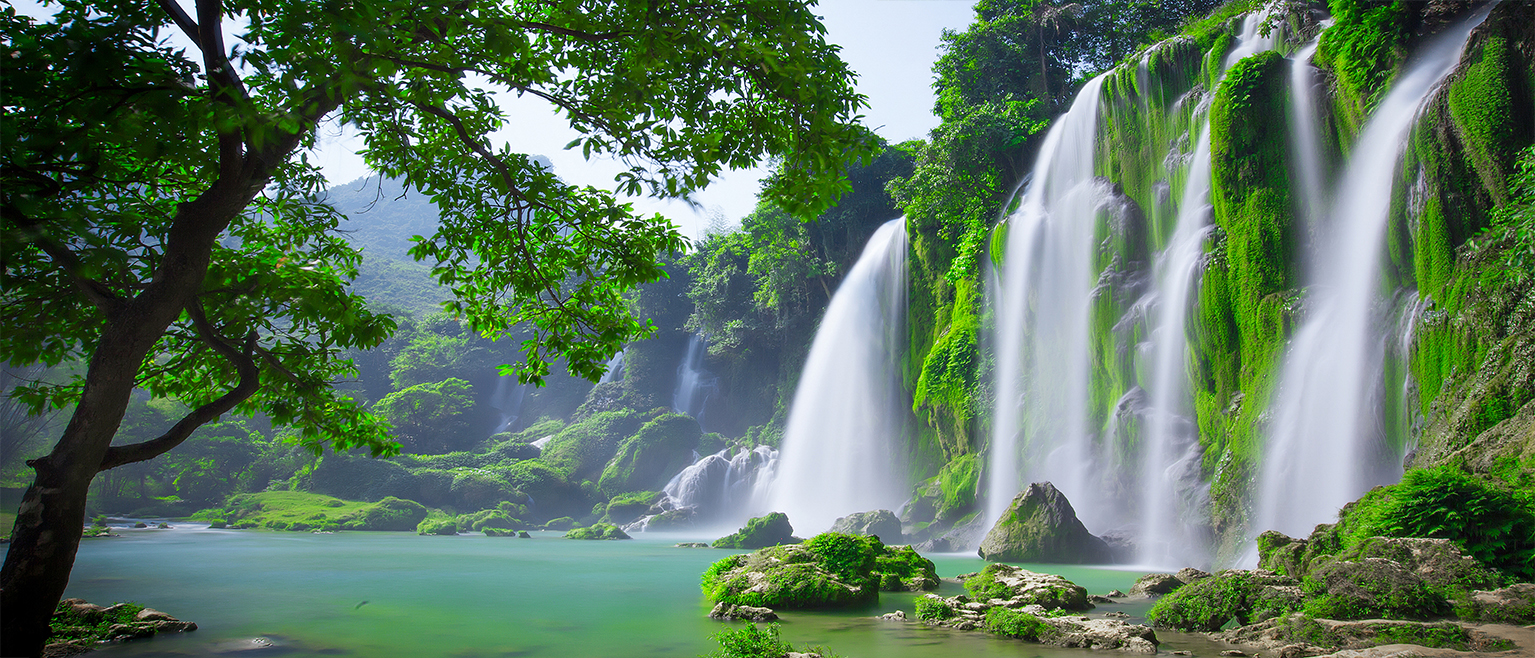Knowing about Cao Bang weather will ensure that you make the most of your time in this captivating destination, allowing you to savor its charm to the fullest and create enduring memories that will stay with you long after you depart.
As one of the most charming provinces in Northern Vietnam, Cao Bang is an ideal destination for those who are searching for an incredible place to escape from the bustling city life and reconnect with nature. If you intend to visit Cao Bang in your upcoming holiday, read on to learn about Cao Bang weather and some interesting things to do in Cao Bang.
1. Overview of Cao Bang weather
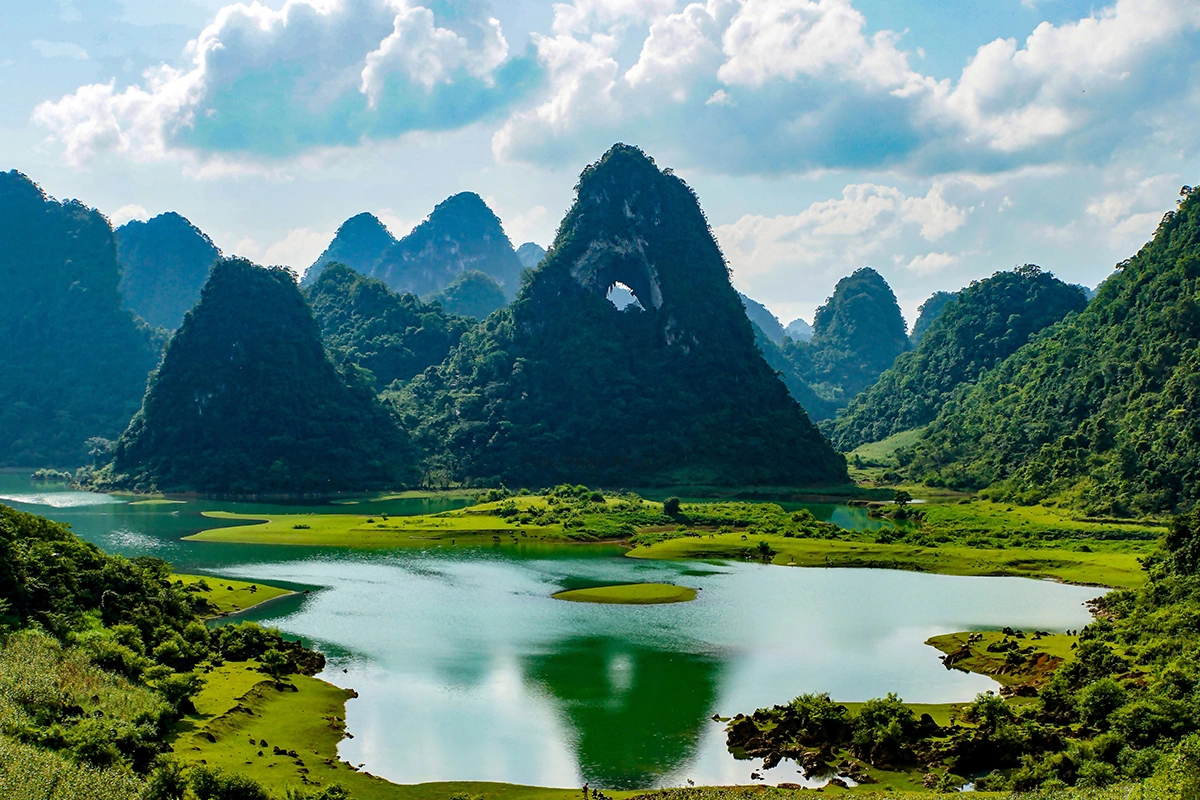
Situated in the northern region of Vietnam, Cao Bang weather is characterized by its windy terrain and the direct influence of cold air from the north. The province has a mild average temperature, ranging from 24 to 33 degrees Celsius. The weather in Cao Bang can be divided into four distinct seasons as follows:
- Spring (from February to March): This delightful season brings a cool or slightly chilly atmosphere, accompanied by relatively low rainfall. The temperatures during this time of year typically range from 12 to 23 degrees Celsius, making Cao Bang weather ideal for outdoor enthusiasts and nature lovers.
- Summer (from April to August): The temperatures in Cao Bang during this season range from 25 to 35 degrees Celsius, making it a cooler and more comfortable place for travelers seeking relief from the sweltering heat in other northern cities. The period from June to August experiences a higher likelihood of rainfall, which can lead to occasional downpours and thunderstorms.
- Autumn (from September to October): With temperatures ranging from 18 to 30 degrees Celsius throughout the day, Cao Bang weather in autumn is relatively cool. This season offers a respite from the extremes of both summer’s heat and winter’s chill.
- Winter (from November to January): The temperatures in winter range from 10 to 18 degrees Celsius during the day, providing cool and pleasant weather that is perfect for outdoor activities. However, as the sun sets, the chill descends, and the temperatures can plummet to below 5 degrees Celsius, especially during the night.
2. A detailed guide to Cao Bang weather by month
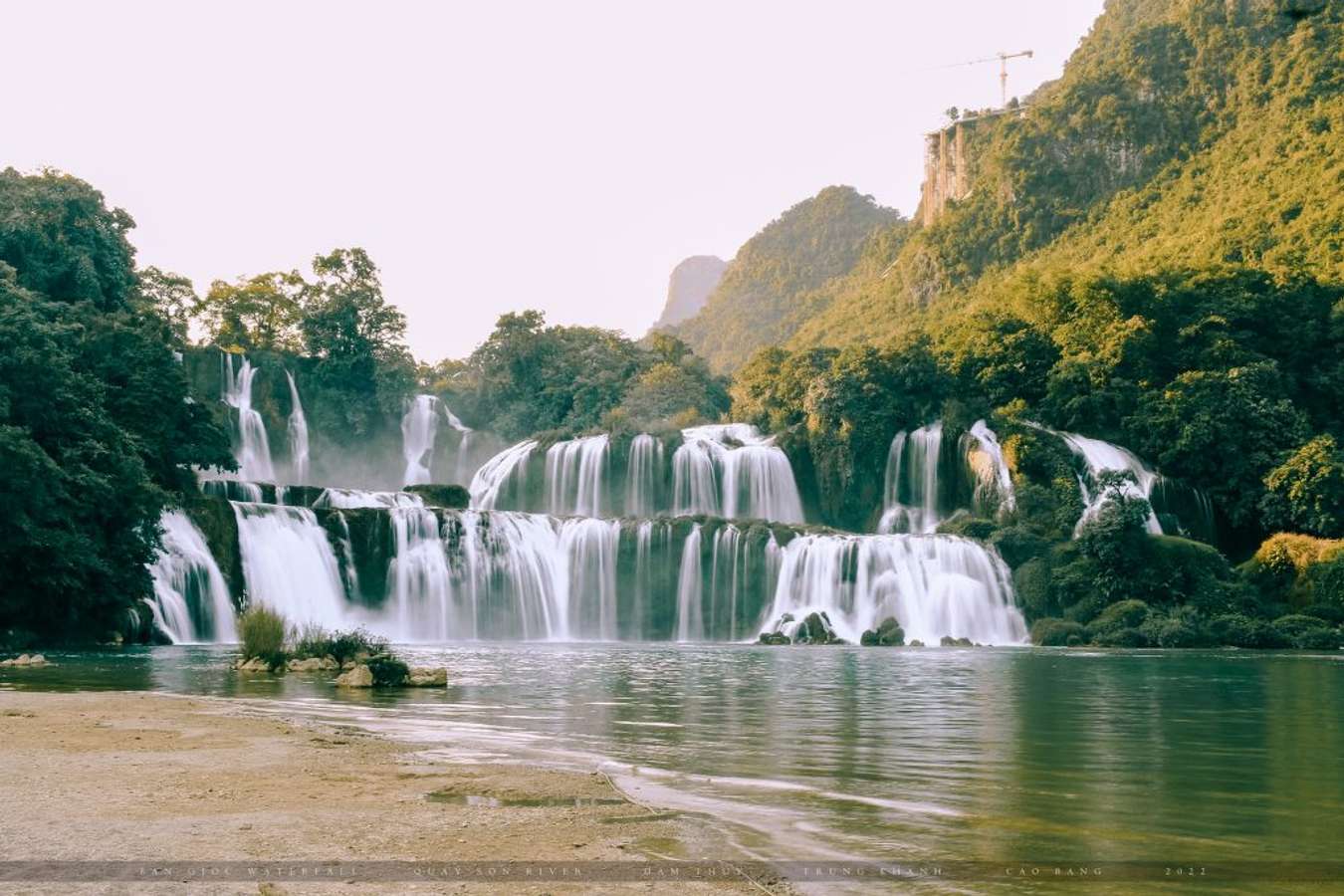
| Month | Features of Cao Bang weather | Packing tips |
| January | Cold and dry with occasional light drizzles | Warm clothes such as jackets, sweaters, and rain gear for drizzles |
| February | Same as in January, but with slightly milder temperatures | Same as in January |
| March | Cold and dry, with more sunny days and less light drizzles | Layered clothing for changing temperatures and comfortable walking shoes |
| April | A mix between dry and wet days, marking the beginning of the rainy season | Light and breathable clothing |
| May | Warmer with frequent thunderstorms | Light and quick-drying clothing, rain gear, sunscreen, and hats |
| June | Hot and humid with downpours and thunderstorms | Light clothing, rain gear, and insect repellent for mosquitoes |
| July | Hot weather with heavy rains | Light clothing and rain gear |
| August | Cloudy with reduced rainfall | Light layers and umbrella |
| September | Cloudy with occasional heavy rains | Light raincoat and waterproof shoes, warmer clothing |
| October | Cloudy with occasional rains | Warm layers and comfortable shoes |
| November | Cloudy with more sun | Warm clothing, hats, and scarves |
| December | Cloudy with occasional drizzles and foggy weather | Warm layer, rain gear clothing, and flashlights |
3. Best time to visit Cao Bang, Vietnam
3.1. August and September
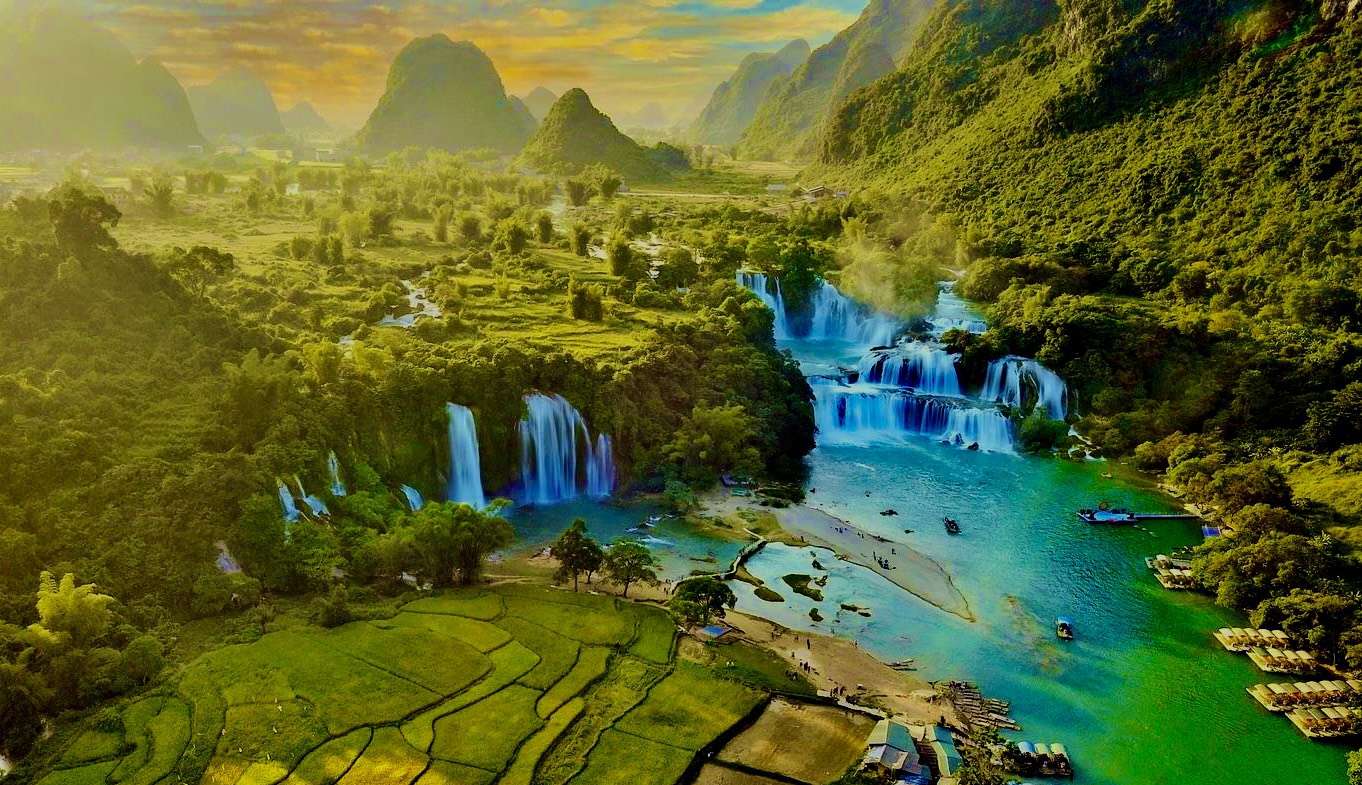
If you find yourself pondering over the ideal time to visit Cao Bang, look no further than the captivating months of August and September during the splendid autumn season. Visiting Cao Bang during these months, you will get to see the unparalleled beauty of Ban Gioc Waterfalls.
As August and September embrace the region, this waterfall’s majestic charm reaches its peak. The water cascades down from above, flowing with crystal clarity and a serene blue hue. The scenery is truly a sight to behold, with the white foam and rolling cascades painting an awe-inspiring picture amidst mountains.
Moreover, the weather in August and September is ideal for outdoor activities. The coolness of autumn allows for a comfortable exploration of the region’s captivating landscapes, from its lush forests to charming villages and rice terraces.
3.2. November and December

November and December are also ideal times for travelers to explore Cao Bang. A must-see attraction during this season is the golden mountains adorned with wild sunflowers in the communes of Thai Duc and Thi Hoa. These large sunflowers, with their bright yellow hues, create a sight that exudes serenity and leaves visitors smitten with admiration.
Additionally, November and December offer an opportunity to embark on a delightful journey through the northwestern and northeastern regions of Vietnam, including Cao Bang. During this time, the landscapes become adorned with enchanting buckwheat flowers. The valley of buckwheat flowers in Cao Bang is easily accessible from the city center.
3.3. March and April
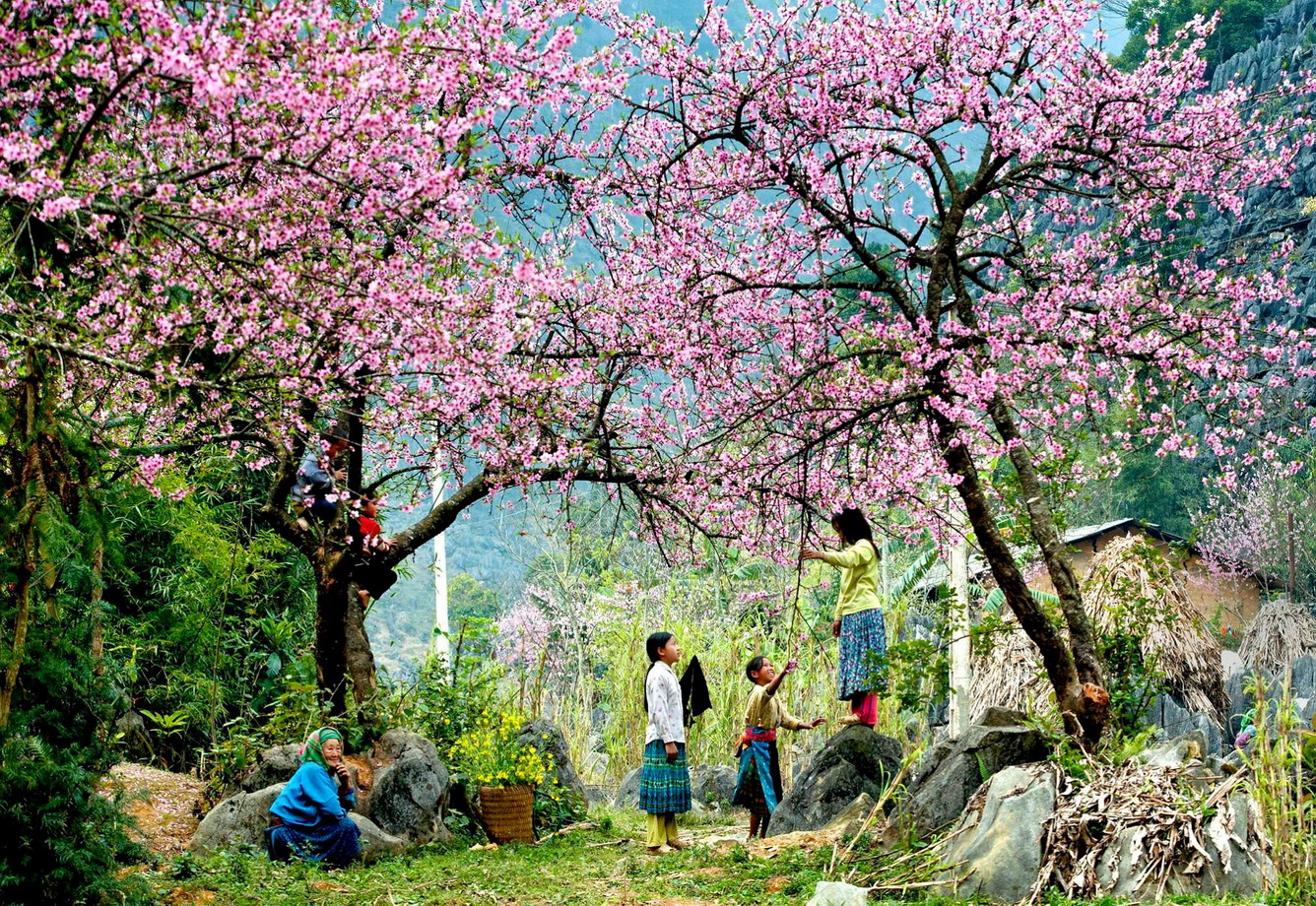
Traveling to Cao Bang in March and April may not be popular but still proves to be an exquisite time to explore this northeastern gem. During these months, the scenery comes alive with a burst of colors, as beds of late-blooming mustard flowers, pear flowers, and plum flowers paint a mesmerizing picture across the region.
In addition, March and April offer milder weather, making it a pleasant time for outdoor activities. The temperatures are comfortable and the landscapes become an inviting setting for hiking, trekking, and strolling amidst the blossoming beauty.
3.4. From April to August
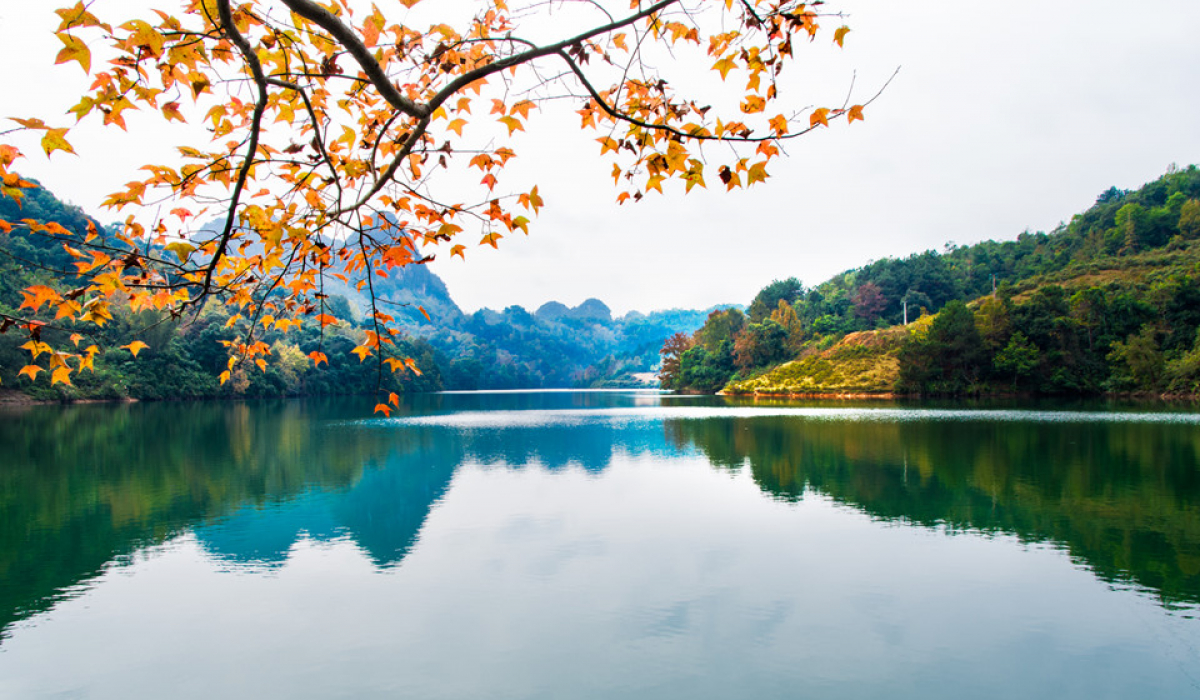
If you desire a summer getaway that combines the allure of nature with cooler temperatures, it is highly recommended that you visit Cao Bang between April and August. Despite the possibility of rain, summer in Cao Bang presents a unique opportunity to witness its natural beauty at its peak. The landscapes flourish with lush greenery and numerous splendid sights to admire. Some charming attractions that should be included in your bucket list are Nguom Ngao Cave, Phong Nam Valley, Nui Thung Mountain, Me Pja Pass, and Pac Bo Cave.

